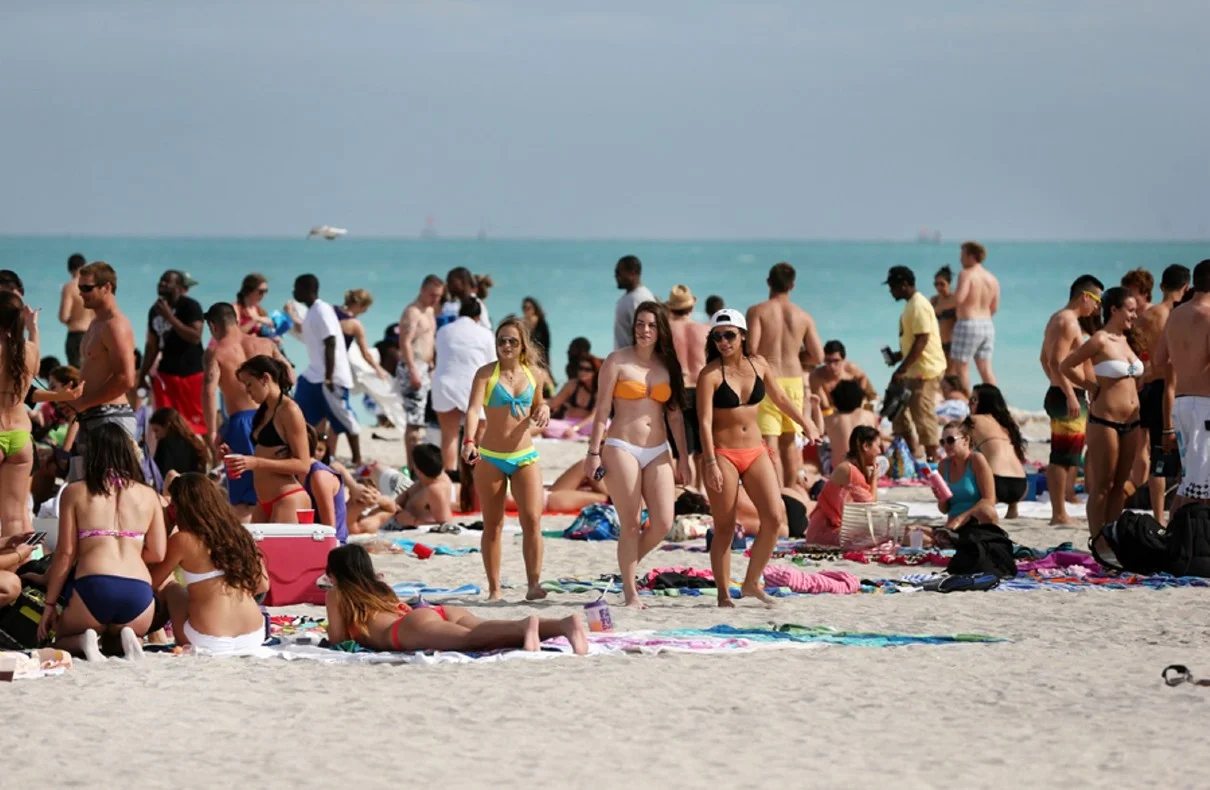As the calendar flips to March, a wave of excitement usually sweeps college students across the United States. Spring break, a week-long hiatus from academic rigors, is a much-anticipated occasion. However, for the popular destination of Miami Beach, it is a whole different story. Fed up with the unruly behavior and violence during this period, the city has decided it’s time for a “breakup.”
Historically, Miami Beach has been a magnet for spring breakers, attracting droves of students eager for sun, surf, and socialization. However, the influx of visitors has been accompanied by a surge in disorderly conduct, violence, and negative headlines, tarnishing the city’s image.
The city’s leaders have grown weary of the spring break chaos. In recent years, the city has had to impose midnight curfews in response to shootings amid large crowds. The police have had to resort to using SWAT teams to enforce an 8 p.m. curfew. The local NAACP branch has even condemned the aggressive response by police against Black spring breakers as racist.
Ricki Lake Incredible Weight Loss Journey: A Testament to Health and Fitness
In a bid to restore “law and order”, the city has declared that it is “breaking up with spring break.” This year, the city is implementing a series of strict measures aimed at curtailing unruly behavior and reducing the number of visitors during March.
The city’s “law and order” plan includes a series of severe measures ranging from parking garage closures to rental bans. City officials have emphasized their unity in implementing these measures, with Mayor Steven Meiner stating, “Enough is enough, and that’s why we’re so united.” However, the planning process has been fraught with political tensions and disagreements, leading to questions about the city’s preparedness to tackle the challenges of spring break.
The city has taken a bold approach to ensuring public safety. Some of the most stringent regulations ever imposed for Miami Beach during spring break include the closure of public parking garages and lots and a ban on sidewalk seating at Ocean Drive cafes during the second and third weekends of March.
In addition to the regulatory measures, the city is also ramping up its law enforcement presence. The Miami Beach police union has publicly criticized the administration’s spring break plans, but Police Chief Wayne Jones has assured that there will be more police in South Beach in March “than you’ve ever seen before.”
Ben Affleck and Jennifer Lopez Lock Lips on Lunch Date: A Love Story Rekindled
Despite the city’s efforts, the plan has sparked controversies. Business owners have expressed concerns about the effects of the measures on their operations. The Ocean Drive Association, a collection of business owners on the strip, claimed that the removal of sidewalk seating could lead to more spring breakers walking near hotels and restaurants, potentially endangering guests and workers.
As March begins, the city’s plans are set into motion. The city is charging a flat rate for parking, doubling the towing rate in South Beach for nonresidents, and limiting beach entrances on Ocean Drive. More disruptive measures, including sweeping parking closures, motorized vehicle rental bans, and a DUI checkpoint, will be implemented during the weekends when the highest volume of visitors is expected.
The future of spring break in Miami Beach remains uncertain. While the city’s leaders hope that the new measures will deter unruly crowds and restore peace, there are doubts over whether the measures will have the desired effect.
The city’s “breakup” with spring break signifies a turning point in its approach to managing the annual influx of college students. As the city braces itself for the month of March, the success of its “law and order” plan will be put to the test.
